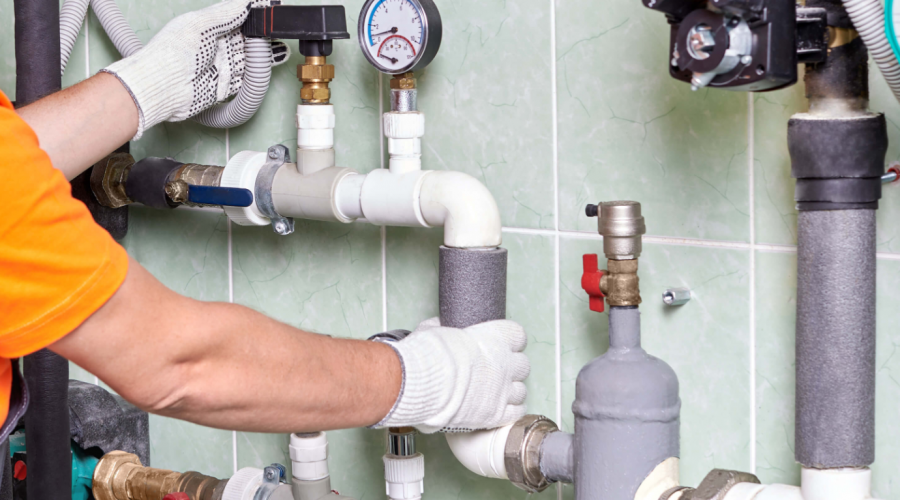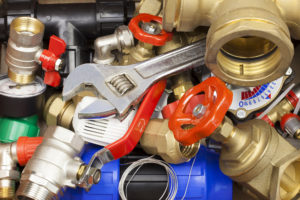Urgent Plumbing Tips: How to Manage Issues Until Assistance Arrives
Urgent Plumbing Tips: How to Manage Issues Until Assistance Arrives
Blog Article
What are your thoughts and feelings about Expert Tips for Emergency Plumbing Repairs?

Pipes emergency situations can strike at any moment, triggering anxiety and prospective damages to your home. Whether it's a burst pipe, a blocked drain, or a leaking faucet, knowing exactly how to manage the circumstance until a specialist plumber arrives can conserve you from additional issues. This post gives crucial emergency pipes tips to aid you mitigate damage and restore control throughout a pipes situation.
Shut off the Water System
The very first step in any type of plumbing emergency is to shut off the water supply. For localized concerns, such as a leaking faucet or commode, switch off the shutoff near the component. When it comes to a significant leakage or ruptured pipeline, situate your home's primary water shut-off valve and turn it off instantly. Knowing the location of these shutoffs ahead of time can save valuable time throughout an emergency situation.
Address Small Leaks with Short-term Solutions
Tiny leakages can swiftly end up being considerable problems if left uncontrolled. Make use of these momentary repairs up until professional aid gets here:
While these fixes aren't irreversible, they can assist reduce water loss and damages.
Unclog Drains Securely
A clogged up drainpipe can be an irritating and unpleasant problem. Here's how to tackle it:
If these approaches don't function, avoid utilizing extreme pressure, as it may aggravate the clog.
Manage Overflowing Toilets
An overflowing commode can trigger prompt chaos. Right here's what you need to do:
Turn off Your Hot Water Heater
In certain emergencies, such as a ruptured pipeline, it's important to shut off your water heater. This stops overheating or damage to the system when water stops streaming. Switch off the power supply to the hot water heater (electrical or gas) and allow it cool down to prevent possible hazards.
Briefly Quit a Ruptured Pipe
A burst pipe can cause substantial water damages in mins. To minimize the issue:
Call a specialist plumbing professional immediately to deal with the trouble permanently.
Handle Frozen Pipes Thoroughly
In chillier climates, icy pipelines are a typical emergency situation. If you believe an icy pipeline:
Protect against Additional Damage
Taking quick action to decrease damages can save you money and time in the future. Below's how:
. Have an Emergency Pipes Kit
Prepare a standard plumbing emergency kit to manage minor concerns efficiently. Your package ought to include:
Having these devices on hand can make a considerable distinction in your ability to handle emergency situations.
Know When to Call a Professional.
While quick fixes can assist temporarily, specific pipes concerns require instant specialist attention. Call a plumbing professional if:.
Without delay contacting a professional makes sure the problem is settled correctly and avoids more difficulties.
Conclusion.
Pipes emergency situations can be overwhelming, however with the appropriate knowledge and tools, you can take care of the scenario effectively up until aid arrives. By switching off the water supply, addressing small leaks, and making use of short-lived repairs, you can reduce damage and maintain your home safe. Bear in mind, these suggestions are short-term remedies; constantly consult a certified plumbing technician to take care of the origin of the trouble. Prep work and fast reasoning are your ideal allies in any plumbing emergency.
8 Helpful Tips for Managing Plumbing Emergencies at Home
If your plumbing system hasn’t failed once, wait for it because almost everyone has a story to tell. Sometimes, it could be simple emergencies such as a leaking pipe, a blocked cistern, or even a big burst pipe. In situations like this, you need to have some handy tips to save you some money and from possible damages.
Take care of minor issues early.
Sometimes, you could have avoided an emergency by taking proactive measures while it was still early. Some major plumbing emergencies can be a result of an ignored minor issue. We recommend that you have items like plumbing tapes and other related items. A plumbing tape can allow you to manage minor leaks before the plumber arrives.
Cut off the water supply.
This tip is essential in almost any type of leakage problem. For problems like minor leakages in the toilet or kitchen, turn off the supply that takes water to the affected pipes. If the leakage is a major pipe, you must shut off the supply valve to the entire building. This will help you avoid flooding your home and neighbors if you share a flat.
Know your plumbing system
Folks typically move into a new apartment without understanding the water supply around the building. This can prove disastrous if a water emergency arises and the plumber is far away. The previous tip will prove useless if you don’t practice this one. More importantly, know where your water shut-off valve is located – you’ll need that knowledge to prevent potential home floods.
Have some common handy tools
There are lots of plumbing emergencies that you can handle without hiring a plumber. That’s why you must keep some tools available always. Some tools that you can use to fix simple plumbing emergencies easily include plumbing tapes, screwdrivers, thread seal tapes, plungers, pliers, tape measures, and rubber gloves.
Insulate your pipes from cold
You’ll save yourself from many plumbing expenses if you protect your water pipes from the cold. This is because of the harmful effects that cold weather can have on your pipes. During winter, your pipes can burst from being overly expected to freezing temperatures. So, make sure insulators are there to keep the pipes working correctly.
Avoid practices that will clog your toilet.
Many people indulge in practices that can damage the plumbing system of the entire building. One of these is when they use their toilet to dispose-off garbage. They flush all kinds of things, such as paper towels, bandages, hairs, female sanitary products, etc., down the toilet. This will block your toilet in the long run, incurring unnecessary expenditures. Dump such waste in the trash instead.
Check your dials regularly.
Sometimes, there could be leakages in your home without noticing them in time. So, constantly monitor your water meter dial. If the dial is reading when there is nobody using water, this is an indicator that there is leaking. Check for leaks immediately. Call a plumber as soon as possible if you can’t find any.
https://www.constructionplacements.com/8-helpful-tips-for-managing-plumbing-emergencies-at-home/

I have been very involved in Expert Tips for Managing a Plumbing Emergency Until Help Arrives and I hope you liked our entry. Please take the opportunity to distribute this article if you enjoyed reading it. Thanks a lot for taking the time to read it.
Get Quote Report this page